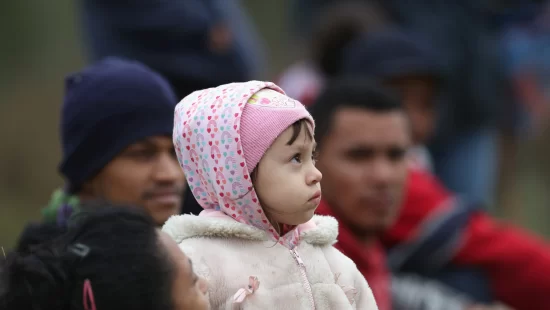One day, amid the vast sea of information on social media, a Zapotec woman appeared on my screen, smiling broadly as she spoke in a video in English.
I became interested in following her Instagram page—not out of curiosity, but because of the information and knowledge she shared.
Her name was Liliana Palma Santos. She is 35 years old and has spent several years building her empowerment project, Zapotec Travel by Lily. She was born in Santa Monica, California, speaks English and Spanish fluently, and has brought to life a concept of immersion in Oaxacan Indigenous culture that is unique in Mexico.
“Everything came together naturally. When I returned to Oaxaca to live full-time, I already had an idea of what I wanted to do. The concept of Zapotec Travel came on its own; it took shape after I arrived,” Lily says.
Speaking with her is like taking a history lesson on Indigenous communities, but not only that—it also means absorbing the social, cultural, and human-rights commitments of a story hundreds of years old.
“My parents migrated to California before I was born; my mom and dad met here. They couldn’t find economic opportunities in Mexico and decided to do what many Mexicans do—migrate here. I always felt Oaxacan. I was born in California, but our parents often took us to Oaxaca,” Lily adds.
Her family had grown up very poor, and Lily is very emphatic about the treatment Indigenous people receive in Mexico—the lack of acceptance and the mistreatment they endure.
“My mom migrated to Mexico City before coming to California. They treated them terribly there. When people ask me about it, I say: ‘Did you see the movie Roma?’ (referring to Alfonso Cuarón’s film, in which Yalitza Aparicio works for an upper-middle-class family and is treated in a ‘degrading’ way). Well, that’s basically my mom’s story,” Liliana says.
For her, the worldview of being “Oaxaqueña” means something very different from what most people—tourists or nationals—understand. She speaks of a vast, immense, diverse Indigenous culture rooted in the traditions and customs of the hundreds of Indigenous groups that have lived by their own rules and beliefs throughout Mexico’s history.
Lily always felt she was part of that culture. More than that, she understood she had to live it, assimilate it, and above all, respect the culture she belonged to.
“Indigenous communities still suffer discrimination. Even today, in downtown Oaxaca, you can see how many are treated. Even though I own my business and am successful, service is sometimes denied to me. If I go with friends wearing traditional clothing, you can see the disapproving looks. That’s why, at Zapotec Travel, I’ve always tried to offer tourists a unique and authentic experience—something different from typical tour options. We work with communities, producers, and artisans who share their knowledge with our clients. I ask only one thing from tourists: respect and fair payment for what they receive. Some people think they should pay Indigenous people less just because they’re Indigenous. And I’m very clear about this: respect and the fight against colonialism start right there,” she adds.
Lily says her grandmother is a symbol of Indigenous resistance. For years, at her food stand, she has delighted people with the unmistakable flavors of Oaxacan culture. “I’m grateful I decided to come back and spend time with her. She’s taught me so much. She’s a very wise woman, and I’m grateful for that,” she says.
Blood in Her Skin
For Lily, feeling Oaxacan goes beyond geography—it is part of an identity deeply marked in her life. She is very grateful for where she was born and the education she received. Oaxaca is one of the Mexican states that receives the most tourism; its appeal lies in its culture, Indigenous heritage, and gastronomy, among other elements.
She was an average student, but talented enough to secure educational support that led her to study at Santa Clara University, where she graduated in International Relations.
“I always knew I wanted a profession that allowed me to travel. I think I’ve achieved that. The idea of returning to Oaxaca was always there. Many people thought I was crazy—how could I go back after finishing university and starting my career in the United States? But I did. I was privileged, with parents who always supported me while also instilling discipline and responsibility so I could make my own decisions,” she says.
When she returned, she began by managing an Airbnb in her parents’ home. Things progressed very successfully—until the pandemic hit. She began to worry: there was no income, and her business was just starting. But then she discovered a part of her culture she had always known was there, but had never experienced so deeply.
“There’s a word—Guelaguetza—that many people think is just a celebration. But it’s more than that: it means ‘you help me, and one day I’ll help you.’ That spirit of mutual aid and exchange helped me get back on track and move forward. Later, I began the process for my community to accept me as one of their own—as an Indigenous member. I bought a piece of land, and we had to go there so the elders could discuss it. Being recognized is not easy. Your family has to speak for you—you cannot speak for yourself—and then you must fulfill ancestral rituals. They accepted me as one of them,” she says. “The elders’ council plays a vital role. They are the most respected people in the community.”
Returning to Oaxaca changed her life and reaffirmed the worldview passed down by her family. Through that process, she confirmed something essential: “I’ve returned to the origin of my being, to my family’s origin. It’s important to know that there’s a place you can always return to, and people you can count on.”
The term “Zapotec” refers to an Indigenous people and a group of languages. It comes from the Nahuatl zapote, meaning “people of the sapodilla,” while the Zapotecs call themselves Binnizá or Ben’Zaa, meaning “people of the clouds.”
In Lily’s case, she has traveled and shaped her experience walking through that same realm—the space where those clouds exist, where she has lived and traveled.
That’s how the multicolored tortillas were born—through them I send messages to other communities. For example, when the issue with immigrants in the United States escalated, I came up with something—a strong message. I made a tortilla with the phrase: ‘Fuck ICE,’” she says.
Zapotec Travel by Lily
Lily says her grandmother is a symbol of Indigenous resistance. For years, at her food stand, she has delighted people with the unmistakable flavors of Oaxacan culture. However, being in downtown Oaxaca is not easy. Gentrification has brought disputes over land use and an influx of new residents willing to pay anything to “experience Oaxacan culture,” as they see it. Her grandmother has not backed down—she has fought against the status quo, defending her rights, which are metaphorically the rights of Indigenous people themselves.
Lily says she inherited that spirit from her grandmother.
“I’m grateful I decided to come back and spend time with her. She’s taught me so much. She’s a very wise woman, and I’m grateful for that,” she says.
Lily partnered with artisans and mezcal producers to create tours that her clients love. For her, one thing is non-negotiable: respect.
“We open our doors and share our culture, but visitors must accept and respect our people. If someone asks me to translate a question to an artisan and I don’t think it’s appropriate, I tell them: ‘Not that one; that’s not a respectful question in our culture.’ There are many agencies that run money-driven tourism services—they’re not even from here and don’t know anything about the culture. Yes, we charge for our services, and that’s clear. People must stop thinking Indigenous folks should be paid less than what they’d pay elsewhere in the world for similar tourism services. We guarantee one thing: a full immersion with our people and our culture. Some tourists say, ‘Oh, how is it possible that people here once performed human sacrifices!’ I reply, ‘There have been bloodier sacrifices—ask the Spaniards, who massacred our people,’” she says.
Her father taught her an important lesson early on: “You can do whatever you want, but don’t depend on a man.” And she has lived by that.
Zapotec Travel by Lily is a well-known brand in Oaxacan tourism. She has been invited to join other tourism projects in the area, but she continues independently. Her curiosity still guides her. She wants to establish similar projects in other countries with other Indigenous communities. She has begun exploring possibilities in El Salvador and now among Navajo communities in the United States.
“I’m always thinking, seeing what to do, how to contribute, how to express solidarity in the face of injustice. That’s how the multicolored tortillas were born—through them I send messages to other communities. For example, when the issue with immigrants in the United States escalated, I came up with something—a strong message. I made a tortilla with the phrase: ‘Fuck ICE,’” she says.
“My story must be different. I have to move forward with my projects. Many people mock me because they see me as Indigenous. Some say, ‘Lily, why don’t you get surgery? Look—your nose, your chin, your almond-shaped eyes…’ I tell them: ‘This is my beauty—my Indigenous beauty. You want to erase my identity, my origins,’” she adds.
And as she speaks, stories flow—like she is journeying among her ancestors in the midst of the clouds—and above all, that firm, unique voice of resistance and struggle.
“Our worth does not have to be different. We’re normal people; we don’t need to change anything. That attitude has made tourists arrive cautiously at first, afraid of insulting us. Soon they realize that’s not the case. We do not hacemos trueque (barter) with our dignity. I am a woman who knows how to defend myself; I know my rights, and I will fight for them,” she concludes.








